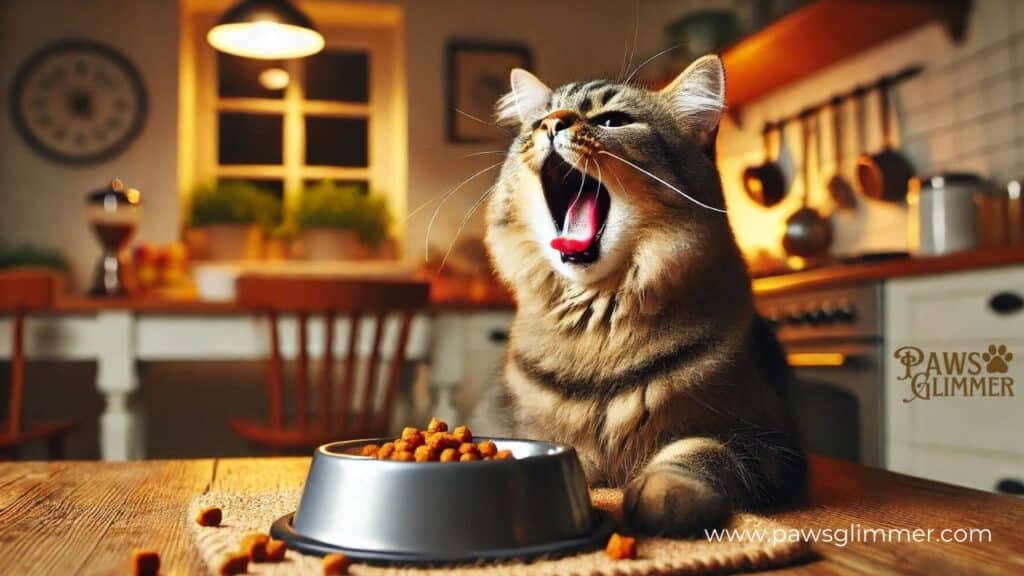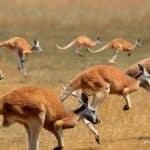Have you ever finished feeding your feline friend, only to be greeted by a chorus of loud, prolonged meows? This post-meal vocalization, often described as yowling, can be both puzzling and concerning for cat owners. In this comprehensive guide, we’ll explore the seven most common reasons behind this curious cat behavior and provide insights on how to manage it effectively.
Understanding Cat Yowling: More Than Just a Meow
Before we dive into the reasons, let’s clarify what we mean by yowling. Unlike the typical feline meow, a yowl is a more intense, drawn-out vocalization that can sound almost mournful. It’s a form of feline communication that often indicates distress, discomfort, or a strong desire for attention.
Cat noise after eating can range from soft trills to loud, persistent yowls. Understanding the nuances of these sounds is crucial for deciphering your cat’s needs and well-being.
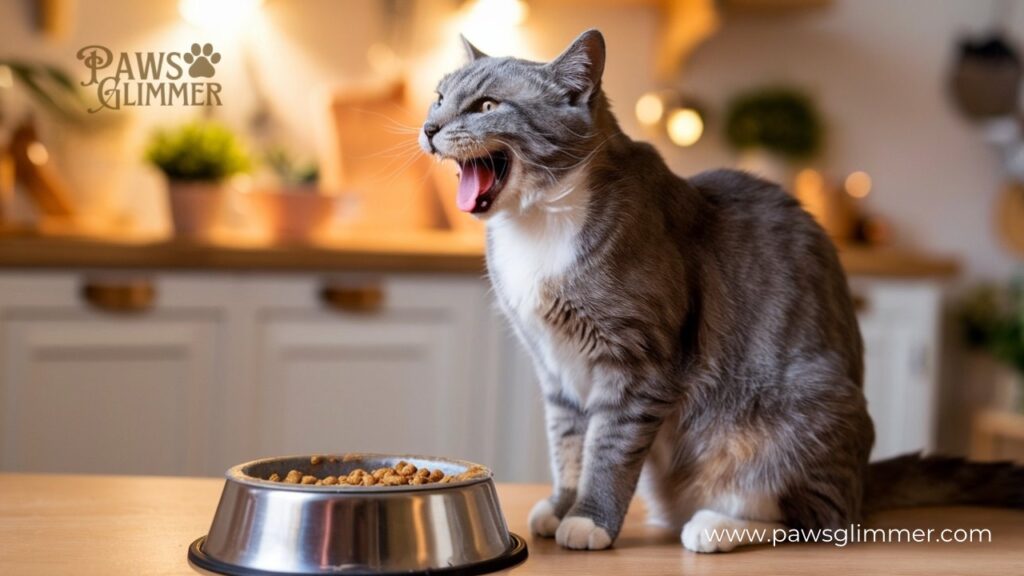
7 Surprising Reasons Behind Your Cat’s Post-Meal Concert
Dental Issues or Mouth Pain
One of the most common reasons for cat yowl after eating is dental problems. Cats are masters at hiding pain, but eating can exacerbate discomfort from dental issues, leading to vocalization.
Signs of dental issues in cats:
- Difficulty eating or dropping food
- Pawing at the mouth
- Bad breath
- Visible tartar or inflamed gums
Case Study: Mr. Whiskers, a 10-year-old tabby, started yowling after meals. A vet check revealed severe gingivitis, which was causing pain during and after eating. After dental treatment, the yowling ceased.
Explore the behaviors of your cat
Gastrointestinal Discomfort
Sometimes, your cat’s post-meal symphony of pain might be due to digestive issues. Food allergies, intolerances, or inflammatory bowel disease can cause discomfort that leads to yowling.
Common gastrointestinal issues in cats:
- Inflammatory Bowel Disease (IBD)
- Food allergies or intolerances
- Gastritis
- Constipation
“Cats with gastrointestinal issues often vocalize due to discomfort. It’s their way of communicating that something isn’t right.” – Dr. Feline, DVM
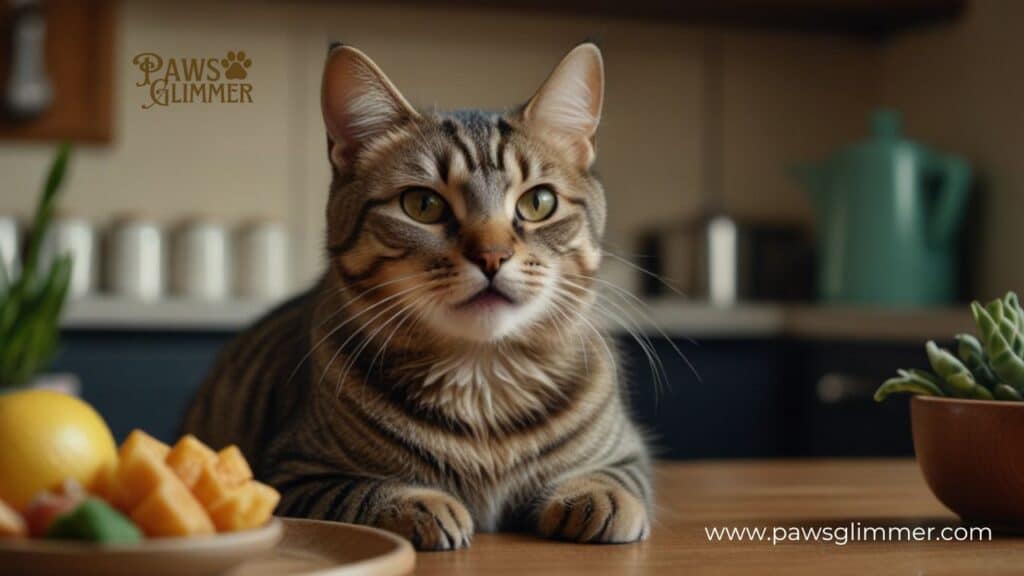
Hyperthyroidism: The Silent Messenger of Illness
Hyperthroidism is a common endocrine disorder in older cats that can cause increased appetite and vocalizations. After eating, affected cats might yowl due to persistent hunger or discomfort.
Symptoms of hyperthyroidism:
- Weight loss despite increased appetite
- Increased thirst and urination
- Hyperactivity
- Vomiting
Diabetes: A Sweet Problem
Diabetes in cats can lead to increased hunger and thirst. A diabetic cat might yowl after eating due to fluctuating blood sugar levels or persistent hunger.
| Symptom | In Diabetic Cats | In Healthy Cats |
|---|---|---|
| Appetite | Increased | Normal |
| Thirst | Excessive | Normal |
| Urination | Frequent | Normal |
| Weight | Loss despite eating more | Stable |
Cognitive Dysfunction in Older Cats: Navigating Confusion
Senior cats may experience cognitive decline, leading to confusion and disorientation. This feline bewilderment can manifest as yowling after meals, as they might forget they’ve eaten or feel unsure about their surroundings.
Signs of cognitive dysfunction:
- Disorientation
- Changes in sleep patterns
- Altered interactions with family
- House soiling
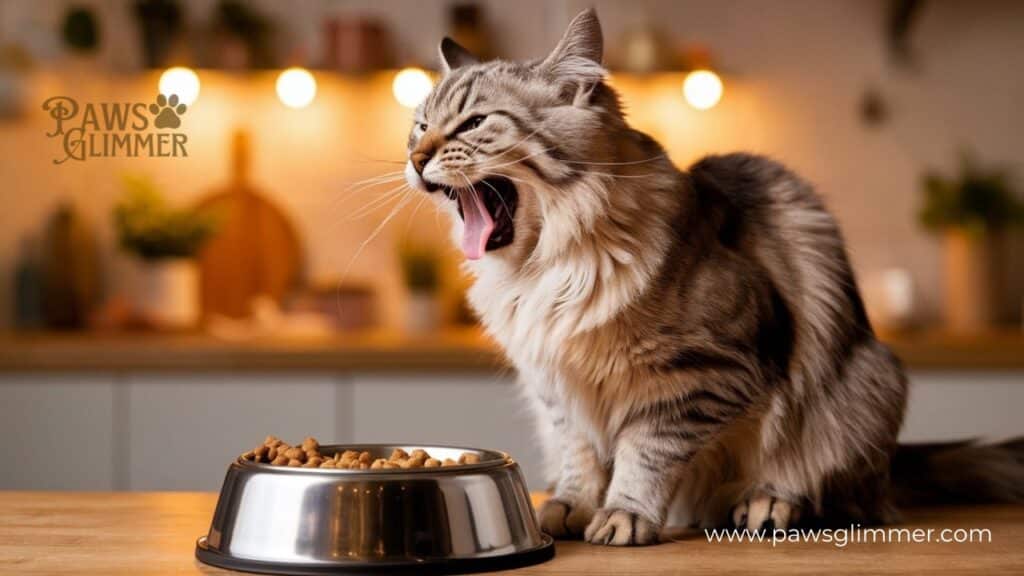
Learned Behavior or Attention-Seeking: Summoning the Caretaker
Sometimes, yowling after eating is simply a learned behavior. If a cat has been rewarded with attention or treats for yowling in the past, they might continue this behavior as a means of seeking attention or calling owner.
How to discourage attention-seeking yowls:
- Ignore the behavior
- Reward quiet behavior
- Provide alternative forms of engagement
- Establish a consistent routine
Common dogs behavior explained
Expression of Contentment or Excitement: Harmonious Expression
Believe it or not, some cats yowl after eating as an expression of culinary bliss. This feline joy is their way of expressing satisfaction with their meal.
Signs of a contented cat:
- Purring
- Kneading
- Relaxed body posture
- Slow blinking
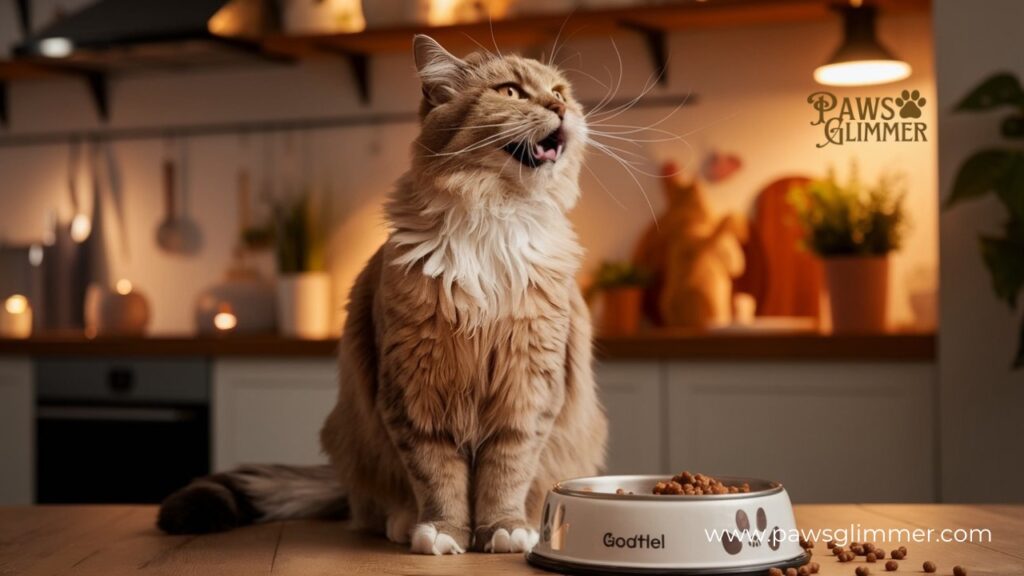
When to Be Concerned: Indicator of Health Intricacies
While occasional yowling might not be cause for alarm, persistent or sudden changes in vocalization patterns could indicate underlying health issues.
Red flags to watch for:
- Sudden onset of yowling
- Yowling accompanied by other symptoms (e.g., lethargy, vomiting)
- Changes in eating or drinking habits
- Signs of pain or discomfort
How to Manage Your Cat’s Yowling: Feline Behavior Management
Veterinary Check-ups and Dental Care
Regular veterinary intervention is crucial for maintaining your cat’s health and preventing issues that might lead to yowling.
Importance of dental care:
- Prevents painful dental conditions
- Reduces risk of systemic health issues
- Improves overall quality of life
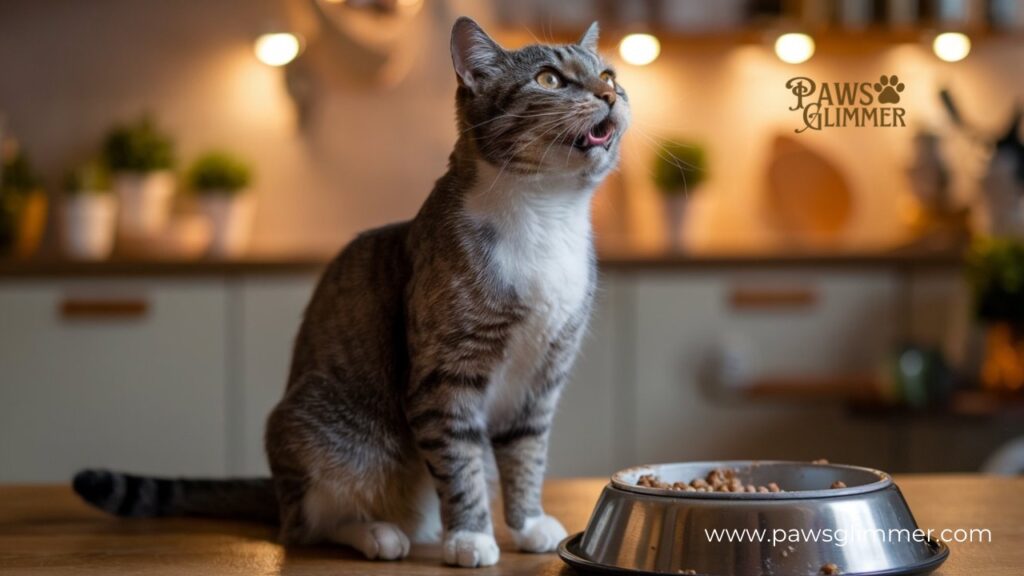
Dietary Adjustments
Addressing food sensitivities and establishing proper portion control can help reduce post-meal discomfort and yowling.
Tips for dietary management:
- Consult with a vet about appropriate food choices
- Introduce new foods gradually
- Consider feeding smaller, more frequent meals
- Monitor for any adverse reactions
Environmental Enrichment
A stimulating environment can reduce stress and boredom, potentially decreasing attention-seeking yowls.
Ideas for cat enrichment:
- Interactive toys
- Puzzle feeders
- Climbing structures
- Window perches
Behavior Modification Techniques
Consistent training can help manage yowling behavior.
Effective training strategies:
- Positive reinforcement
- Ignore attention-seeking yowls
- Establish a consistent routine
- Provide alternative forms of attention
Addressing Age-related Issues in Senior Cats
For older cats experiencing cognitive decline, creating a supportive environment is key.
Tips for supporting senior cats:
- Maintain a consistent routine
- Provide easy access to resources (food, litter, water)
- Use night lights to reduce disorientation
- Engage in gentle play and interaction
Prevention: Nipping Yowling in the Bud
Preventing yowling behavior is often easier than correcting it. Here are some proactive steps:
- Establish healthy feeding routines
- Schedule regular health check-ups
- Maintain an enriching environment
- Address any health issues promptly
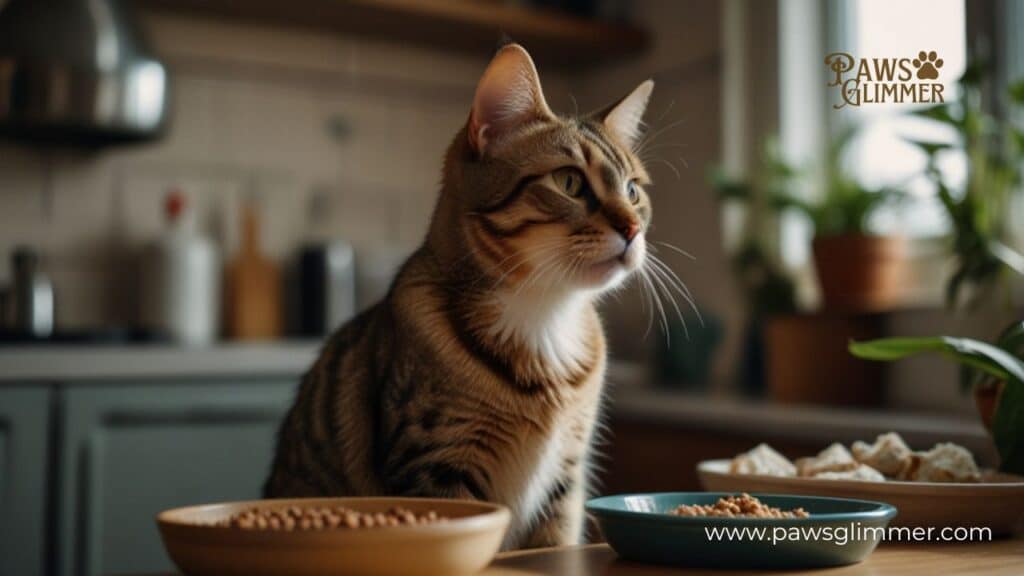
Conclusion: Decoding Your Cat’s Post-Meal Serenade
Understanding why does my cat yowl after eating is crucial for ensuring their health and happiness. Whether it’s an expression of contentment or a sign of underlying health issues, being attuned to your cat’s vocalizations can provide valuable insights into their well-being.
Remember, every cat is unique, and what’s normal for one might be unusual for another. If you ever find yourself wondering again, “Why does my cat yowl after eating?”, don’t hesitate to seek professional counsel from a veterinarian.
By staying observant, providing proper care, and seeking timely veterinary insights, you can ensure that your feline friend’s post-meal vocalizations are more likely to be a harmonious expression of satisfaction rather than a cry for help.
What Does Your Dog’s Bark Mean?
FAQs
Can changing my cat’s diet stop the yowling?
If the yowling is related to dietary issues such as food allergies or gastrointestinal discomfort, changing your cat’s diet under veterinary guidance may help reduce or eliminate the behavior.
Is yowling after eating ever normal?
While occasional yowling can be normal, especially if it’s an expression of satisfaction, persistent or distressed yowling after meals should be investigated.
How can I tell if my cat’s yowling is pain-related?
Pain-related yowling is often accompanied by other signs such as changes in behavior, appetite loss, or visible discomfort. If you suspect pain, seek veterinary advice immediately.
Should I be worried if my older cat suddenly starts yowling after meals?
Sudden changes in behavior, including new onset of yowling, in older cats can be a sign of health issues such as cognitive dysfunction or hyperthyroidism. It’s best to consult with a vet for proper diagnosis and treatment.
Can stress cause post-meal yowling in cats?
Yes, stress can manifest in various ways in cats, including increased vocalization after meals. Identifying and addressing sources of stress can help reduce this behavior.

Raymond Dandan is a seasoned pet blogger with a passion for feline care and behavior. With years of experience and a deep love for cats, Raymond brings expert insights and practical tips to “PawsGlimmer.” His engaging writing and thorough research help cat owners provide the best for their furry friends, making him a trusted voice in the pet community.

